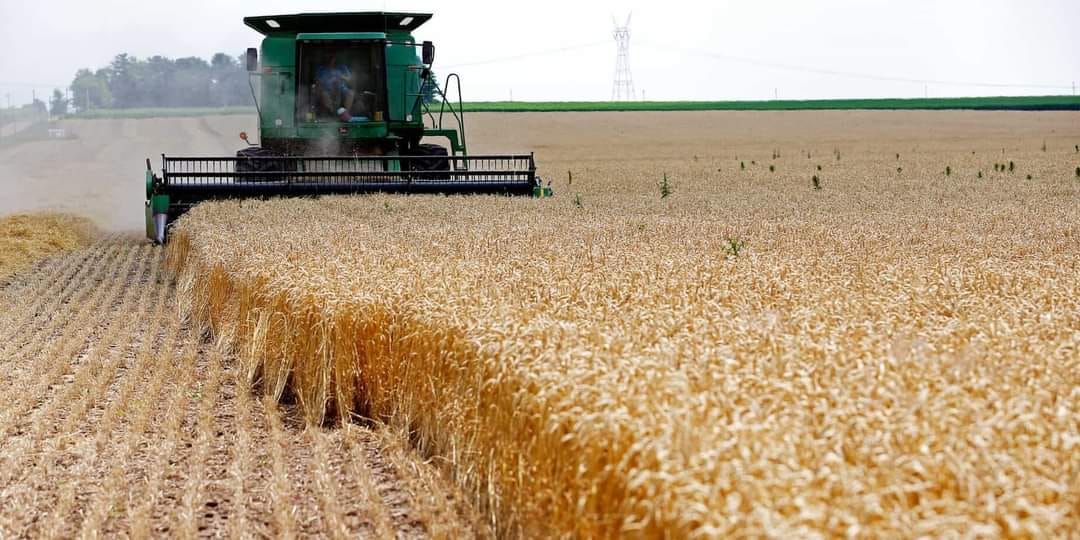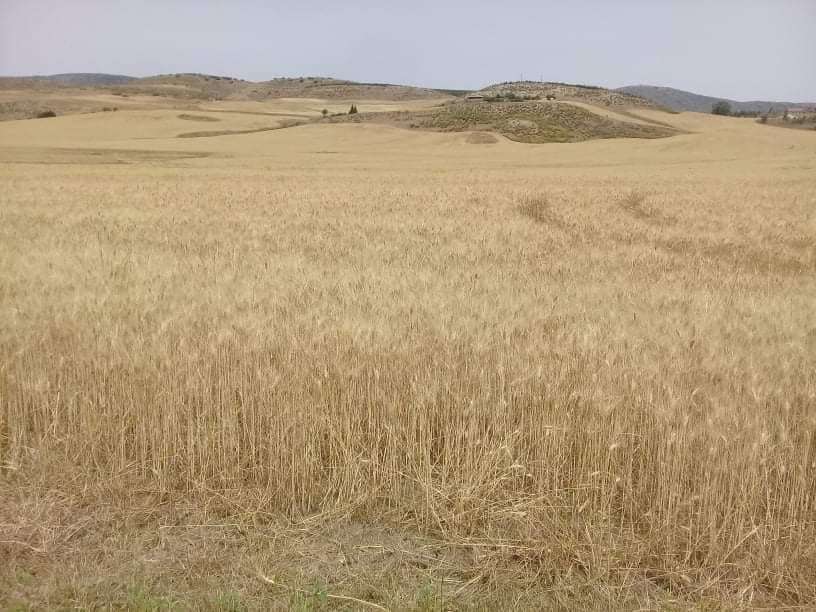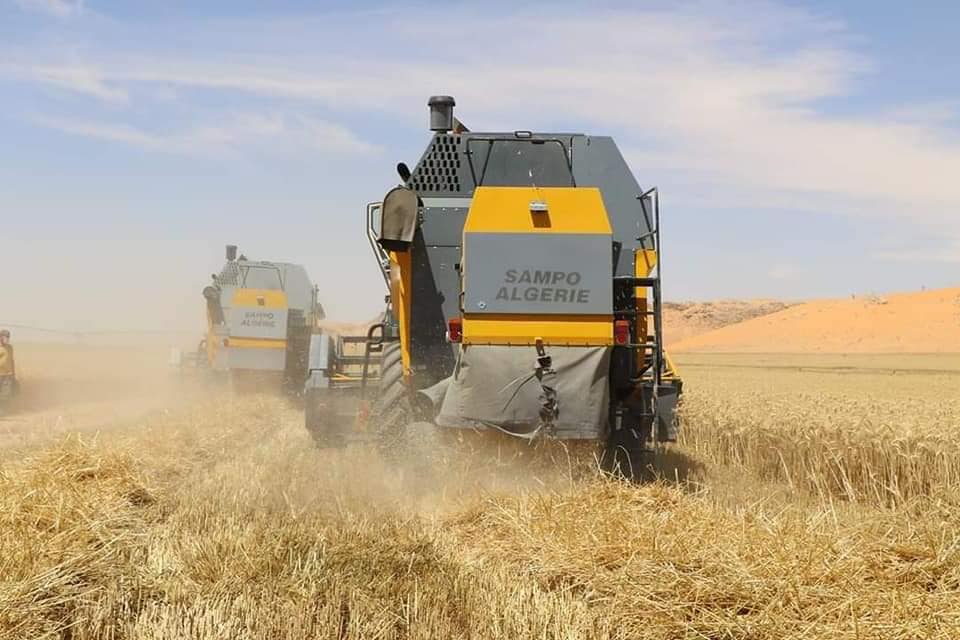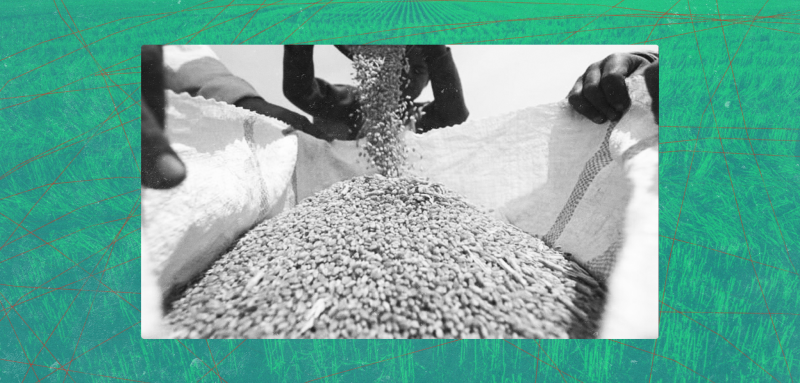Many frightening and disturbing thoughts are currently dominating the minds of farmers in Algeria. Their daily lives are being heavily disrupted by climate change, which is now greatly affecting their agricultural activity, as many of the main food crops there are threatened by scarcity and high prices.
The loss of the plowing season in the region's wheat and barley lands is the biggest concern haunting Abdelghani Beghou, the owner of an agricultural farm for fruit trees and grains in the town of Ain Babouche in the eastern province of Oum El Bouaghi.
Beghou tells Raseef22, "The lack of water, due to the lack of rain so far, has prevented the start of the initial plowing season, which is of great importance to farmers, because it helps prepare the land and soil for planting grain".
Climate change is seriously affecting Algeria's farmers, as many main food crops are threatened by scarcity and rising prices.
The plowing and sowing season in Algeria usually starts between mid-October and the end of November each year.
High costs
The farmer indicates that, "The water level has dropped significantly since the beginning of the summer season in the interior regions and the high plateaus in the center of the country, which are characterized by cold winters with the lowest temperatures reaching one degree Celsius, while precipitation there ranges between 250 and 400 millimeters per year".
Farmers in these areas are also greatly concerned about the high irrigation costs. Beghou says that he owns "a vast land of 50 hectares, and this year I was only able to irrigate 20 hectares in total."
In order to irrigate the remaining areas, Abdelghani states that "being unable to connect his agricultural farm to electricity has prevented him from drilling an artesian well, and the equipment and tools for pivot irrigation cost a lot of money."

A field planted with grains in Algeria - a Raseef22 special report
According to the farmer, perhaps the most prominent agricultural crops that currently need large quantities of water for irrigation are grains. He explains, "Today we are in the sowing stage, which requires large amounts of water for irrigation to ensure a good start and to bring high yields."
The problems facing farmers in the cultivation of wheat and barley are not limited to the towns of the Oum El Bouaghi governorate, but also extend to other governorates of the country, such as the Naâma Province in the southwest, and include other types of produce that are widely consumed.
Abdul Qader, a farmer in one of the villages of Naâma, informs Raseef22 that "Every hectare requires a full pivot sprinkler set that can move and is convertible. The price of each one costs more than 80,000 dinars, equivalent to 900 US dollars, including the cost of shipping and work needed for soil preparation, such as plowing and treating it with animal manure and chemicals, in addition to electricity."
Abdul Qader says, "The cost of electricity depends on the quality of the soil, as the soil in Naâma Province is semi-sandy and permeable, meaning that it consumes water in large amounts, which, in turn, means a high electricity bill. The cost of electricity may be low in other regions, and especially if the planting season is in the spring, specifically during the period between March and May".
A significant decline in water reserves
In the face of this alarming situation, the Ministry of Religious Affairs in Algeria called on mosque imams during the end of last month to perform rain prayers in the mosques of the country, after recording a severe shortage of irrigation water needed for agricultural activity.
"The water level has dropped significantly since the beginning of the summer in the interior regions and the high plateaus in the center of the country, which are characterized by cold winters with low temperatures reaching one degree Celsius per year"
The latest statistics provided by the Ministry of Water Resources and Environment last May reveal that the dams' filling rate at the national level reached 44.52 percent, a rate that the ministry described as "acceptable" and has allowed the improvement of the drinking water distribution system during the past months, especially with the reliance on the desalination of seawater.
But today the situation has become worrisome due to the delay in the autumn rains, or what is locally known as "Ghassalat al-Nawader", which is a very old term that farmers have given to the seasonal rains that fall at the beginning of the autumn season of each year, and washed the earth. It usually falls in late August and the beginning of September, and often does not last more than a day or two. The extremely heavy rain sometimes even causes significant material damage in some villages high in the mountains and even in the cities.
"Al-Nawader" here means the round place found in every Algerian home that is used for collecting and threshing grains. Farmers see these rains as a good sign because they come at the end of the harvest season and wash away (or "ghassal") the "al-Nawader", generally heralding a good rainy season.
In popular tradition, the next agricultural season will be fertile and of great return if these rains fall in great abundance and last for two or three full days. Usually farmers exchange congratulatory greetings during this period to celebrate the bountiful rainfall and wish each other a blessed season.

A field planted with grains in Algeria - a Raseef22 special report
A sustainable solution
Rashidi Moaz, an agronomist specializing in plant diseases and pathology, tells Raseef22 that the "national production of grain has been witnessing a significant decline in recent years, and the problem does not just lie in the amount of rainfall, but rather in climate change, which is causing a change in the system of pressure distributions as a result of the significant rise in temperatures."
Since the beginning of September, Algeria has witnessed a severe heat wave, in which temperatures rose more than 7 degrees Celsius from the seasonal average, especially in the western and central regions of the country.
What is required now is encouraging farmers to grow grains by providing a range of facilitators, in addition to getting rid of traditional crops that rely on rainwater, outdated methods, and old equipment.
As a result of all these factors, the rate of decline in grain production, according to Moaz, ranges between 40 and 50 percent. Commenting on this, he says that "production during 2017/2018 was within the range of 60 million quintals (equivalent to about 143 kilograms per quintal), while in recent years it has become between 30 and 35 million quintals." In this context, the Algerian Minister of Agriculture stated last year that, "The country achieved self-sufficiency in durum wheat in the year of 2019, but its production of soft wheat, the most consumed in the country, remains weak."
What is required now, he says, is to encourage farmers to grow grains by providing a range of facilitators, in addition to getting rid of traditional crops that depend on rainwater, outdated methods, and old equipment, such as plowing with an ox or horse, because modern agriculture relies on pivot sprinkling and irrigation systems, which provide an excellent yield of up to 80 quintals per hectare.

A field planted with grains in Algeria - a Raseef22 special report
The speaker points to other potentials that Algeria abounds in, which could enable it to achieve self-sufficiency and produce all its food needs, such as groundwater and the distinctive climate of its southern cities. He goes on to explain, "If we make good use of the potential of the southern regions, Algeria can launch two harvests per year and achieve self-sufficiency in wheat."
The reasons for Algeria's delay in achieving this sufficiency are due to several causes, including delays from a technical point of view, as the sowing and harvesting mechanisms have not changed for 20 years, according to previous statements by President Abdelmadjid Tebboune. He had also indicated that the state has began working on restructuring agriculture, and things have begun to somewhat improve towards achieving self-sufficiency in terms of food security, even though it will not be complete self-sufficiency, as he put it.
Raseef22 is a not for profit entity. Our focus is on quality journalism. Every contribution to the NasRaseef membership goes directly towards journalism production. We stand independent, not accepting corporate sponsorships, sponsored content or political funding.
Support our mission to keep Raseef22 available to all readers by clicking here!
Interested in writing with us? Check our pitch process here!





